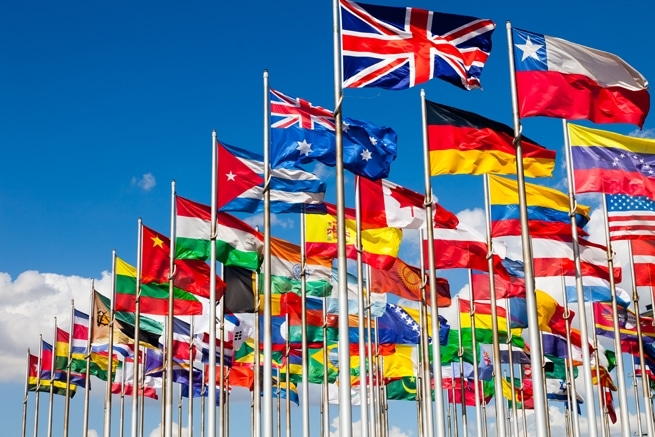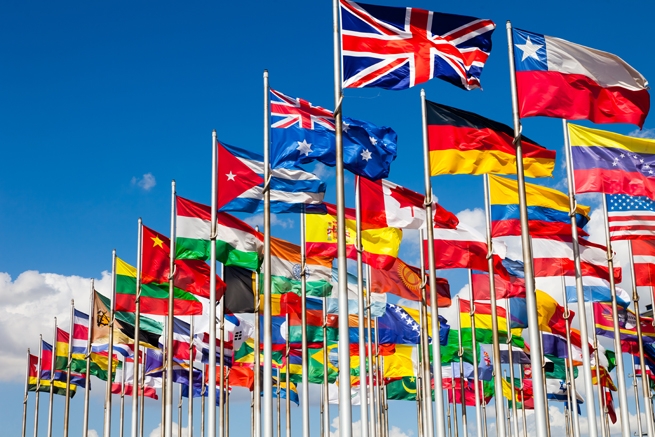Contextualized Training for Non-Western Audiences


By: Steve D.
By God’s grace, I’ve had the privilege of training global missionaries in personal support raising on five continents. It’s truly been a privilege to take what we learned launching SRS in East Asia and applying the concepts to other strategic locations within the Global South where the mission field is quickly becoming the mission force – places like Latin America, East Africa, and Southeast Asia. If I had the space, I could recount thrilling stories of indigenous workers becoming fully funded in record time and completely from within their own culture.
By far the most common question I am asked when connecting with front-line missionaries or agency leaders is this: “How have you contextualized your training for non-Western audiences?” Interestingly, rarely do indigenous workers themselves ask this question; it’s almost always the Western leaders who represent them. Of course, at the root of such a question is the presupposition that support-raising training is a Western concept and that it must be adapted significantly to work in other contexts.
In addition to this sentiment, I sometimes hear objections from indigenous workers who say something like, “Oh, but you don’t know my culture. I could never raise support in my context …” Then they’ll start to name reason after reason why support raising can’t work for them. For whatever it’s worth, I’ve heard the same objection from American missionaries for just about every reason under the sun.
So then, what does and does not change when it comes to international support raising? As a foundational principle, it’s crucial to note that support raising (also known as ministry partner development, or MPD) works not because it’s a great idea but rather because it comes straight from God. The concepts come directly from the pages of Scripture, something you’ll study in great detail if you participate in an SRS Bootcamp. God has always provided for His workers via His people.
In my experience, elements of MPD that don’t change could be summed up as follows: paradigm, partnership, and practice.
The “God Ask” paradigm from Shadrach’s groundbreaking book doesn’t change the world over. In every culture, when God’s people give, they give to the Lord. And when ministry workers receive provision, they receive from the Lord.
Secondly, the concept of supporters as ministry partners translates beautifully across borders and cultures.
Financial supporters of Kingdom ministries are not mere money dispensers or passive benefactors; rather, they are actively involved with the initiatives and workers they support. They are spiritual investors, exchanging temporal material wealth in return for eternal spiritual blessings. Not only so, but any healthy ministry partnership is just that, a partnership based on a two-way relationship.
Finally, I’d like to be so bold as to suggest that most standard aspects of SRS training also translate cross-culturally, whether that be the direct ask for support, referrals and increases, levels of giving charts, or vision-driven communication. I say this because I’ve seen them work around the world.
Put simply, just about all the standard support raising principles work globally.
The specific cultural application may differ, but the principles that undergird these applications usually don’t. Why must we think global workers should have support appointments at Starbucks? Rather, find a culturally appropriate meeting place – it might not even be a restaurant – and offer to meet there. If Mailchimp is blocked in your setting, or sending sensitive ministry newsletters through unsecured email isn’t safe, look for other effective ways to communicate with your partners. Perhaps cold-calling your supporters’ friends (also known as referrals) violates cultural norms for you. No worries! Consider how someone customarily introduces friends to other friends in such and such a culture and follow suit.
Having said all this, it is true that there are at times significant contextualized issues that must be navigated. These could include the shame/honor concept, priority of community, or unique dynamics in the local church. Beyond these, contexts lacking a healthy donation infrastructure or those in which security challenges require direct giving from supporter to ministry worker need to be well thought through to avoid any appearance of financial impropriety. Even more fundamentally, churches or believers lacking a biblical framework for missions may be reluctant to partner with cross cultural missionaries. In that case, what a tremendous privilege global workers have to mobilize these potential supporters by inviting them into ministry partnership!
Global workers would be wise to recognize that support raising is initially a foreign concept in local churches within the Global South, and furthermore many such pastors feel the need to oversee giving from their congregations, even when done individually. Potential supporters may also mistakenly believe that giving is limited to 10% and must be given through their local church. Pastors are often bi-vocational and may struggle to make ends meet themselves. Gospel workers raising support in these cultures ignore these realities at their peril.
I am convinced that in most cases, Majority World missionaries who claim support raising doesn’t work for them say so not because they’ve tried and failed. Rather, I suspect they simply haven’t really tried. I can’t tell you how many times I’ve observed this around the world. In many cases, workers put so much time and energy into getting their church’s support. There’s nothing wrong with that, but they aren’t working at asking individuals. So, when the church’s support comes through (if it does), it may account for only 25% of the total monthly need. Where is the other 75% going to come from?
I dream of the day when there are MPD champions in most major countries and cultures, at least in the top 50 or so countries where global missionaries are being sent from, places like China, Brazil, Nigeria, India, and Indonesia. It’s happening – albeit slowly – but it is happening. May God raise up armies of cross-cultural missionaries to the unreached from these strategic places, and may He raise up the entire Body of Christ to support them!
This article is provided courtesy of Lily Casteel of Support Raising Solutions, a Missio Nexus member. Member organizations can provide content to the Missio Nexus website. See how by clicking here.


Responses